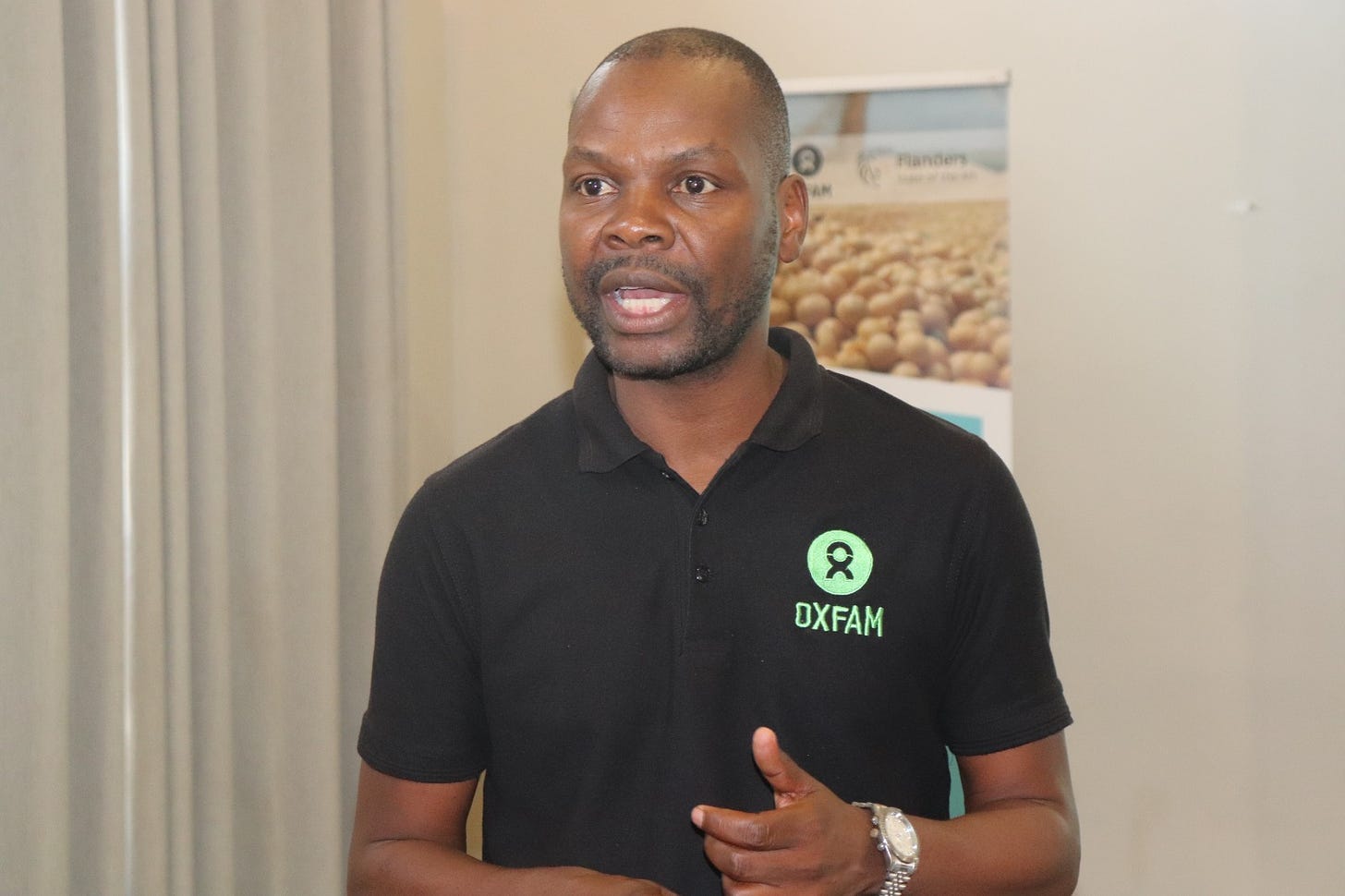Smallholder Farmers in Malawi Face Steep Barriers to Market Access
The project, targeting 3,000 households from four Extension Planning Areas, aims to increase access to predictable and inclusive markets in Kasungu.
LILONGWE, Malawi — Emily, a 35-year-old smallholder farmer from Chiwamba, Traditional Authority Chimutu in Lilongwe district, represents the struggle many Malawian farmers face in accessing markets despite their productive capabilities, writes Meclina Chirwa.
Cultivating a 1.5-acre farm with maize, soybeans, and groundnuts to support her family of five, Emily battles against significant market access barriers.
"I produce good-quality crops, but I struggle to find buyers. The traders come to my farm, offer low prices, and take advantage of me," she says.
Located 20 kilometres from the nearest market, Emily faces multiple challenges: high transportation costs, impassable dirt roads during rainy seasons, and limited access to market information.
"I wish I had access to better markets, where I could get fair prices for my produce. It's frustrating to see my hard work go to waste," Emily explains.
To address such challenges, a consortium of Oxfam, CICOD and CADECOM, funded by the government of Flanders, is implementing the Enhancing Access to Profitable and Inclusive Agriculture Markets for Smallholder Farmers project in Kasungu District.
Patison Nthala, Oxfam's project coordinator, identifies several key barriers: "Lack of exposure by farmers to available markets, lack of proper storage facilities, lack of capacity to hold on to products and sell when prices are right, lack of capacity of farmer group leaders to market, negotiate and seal business agreements are some of the barriers to market access for smallholder farmers in Malawi."
Agriculture expert Tamani Nkhono Mvula emphasizes the need for government intervention.
"This is a long overdue problem that farmers have been facing. As a country, we need to find lasting solutions by proper infrastructure that would help in improving access to markets and the private sector, such as banks and input traders, should provide access to finance among farmers," he said.
The project, targeting 3,000 households from four Extension Planning Areas, aims to increase access to predictable and inclusive markets in Kasungu.
Nthala suggests that supporting farmer groups to increase production and develop business skills could help improve market access in Malawi.



